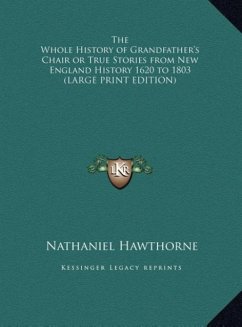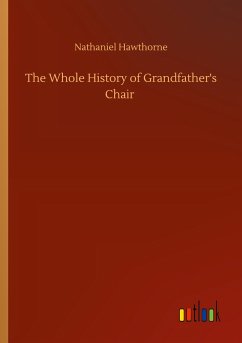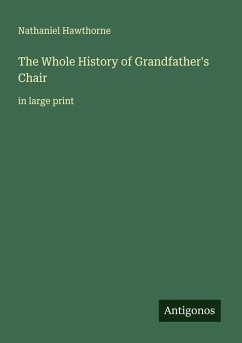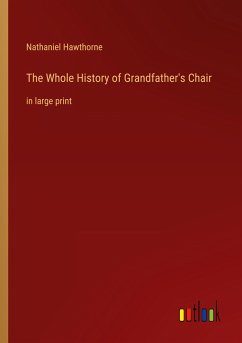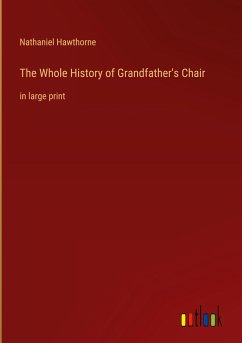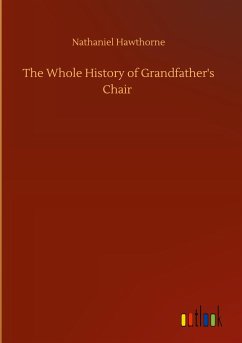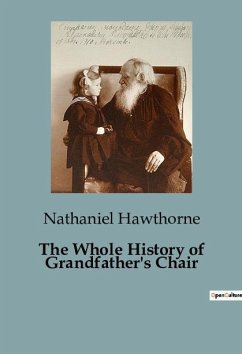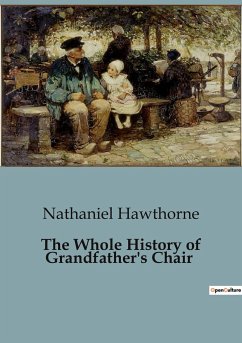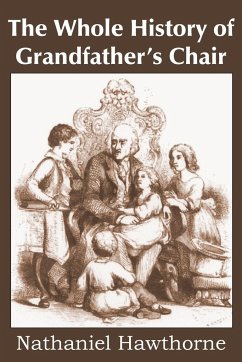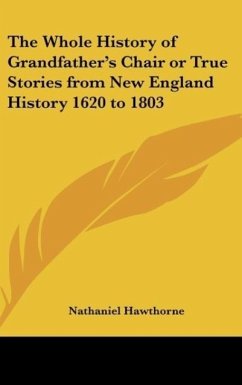
The Whole History of Grandfather's Chair or True Stories from New England History 1620 to 1803
Versandkostenfrei!
Versandfertig in 1-2 Wochen
34,99 €
inkl. MwSt.
Weitere Ausgaben:

PAYBACK Punkte
17 °P sammeln!
1878. The Riverside Literature Series. With a biographical sketch notes and illustrations. In this volume Hawthorne takes an interesting look at Colonial America by following the history of a chair beginning with the first settlers of America. Grandfather tells stories to the children about the owners of the chair as it is passed through the ages from those who first left English persecution up to the time of American independence. Some of the stories include John Smith, John Eliot (translator of the Indian Bible), Pine Tree Shillings (American coinage), French and Indian War, Liberty Tree, St...
1878. The Riverside Literature Series. With a biographical sketch notes and illustrations. In this volume Hawthorne takes an interesting look at Colonial America by following the history of a chair beginning with the first settlers of America. Grandfather tells stories to the children about the owners of the chair as it is passed through the ages from those who first left English persecution up to the time of American independence. Some of the stories include John Smith, John Eliot (translator of the Indian Bible), Pine Tree Shillings (American coinage), French and Indian War, Liberty Tree, Stamp Act, Hutchinson Mob, Boston Tea Part, and Declaration of Independence. See other titles by this author available from Kessinger Publishing.



